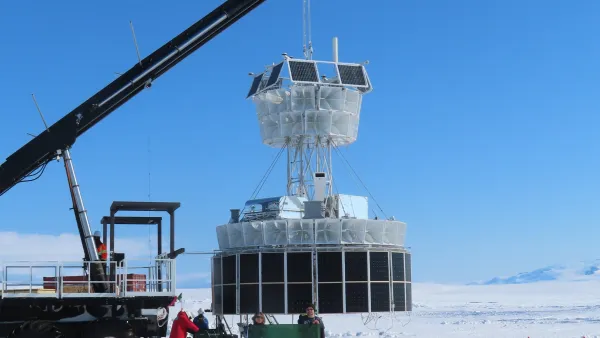Researchers in the Department of Physics in Arts & Sciences at Washington University in St. Louis received $1.5 million from NASA to fund a new flight of XL-Calibur, a balloon-borne telescope built to examine the most extreme objects in the universe. XL-Calibur will be launched from Esrange Space Center in Sweden, north of the Arctic Circle, in May 2024.
https://physics.wustl.edu/xml/article/20929/rss.xml
14932



